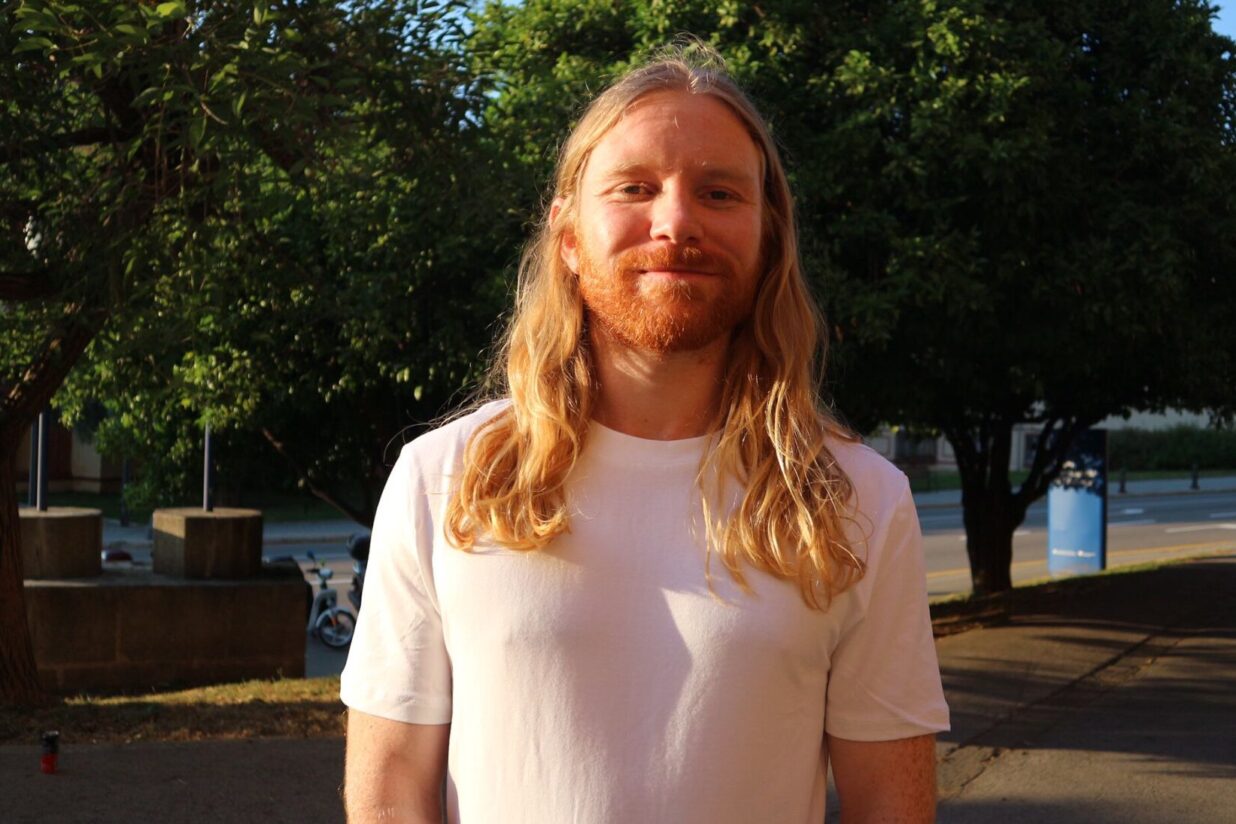23.06.2022 - 11:27
The Barcelona Provincial Court has sentenced William Aitken to five years and one month in prison for his participation in the protests against the imprisonment of rapper Pablo Hasel in Barcelona. The 32-year-old Scot has been convicted of public disorder and attack on authority. This is the first sentence resulting from the protests against the imprisonment of rapper Pablo Hasel according to Alerta Solidària, the solidarity group in charge of his defense. The verdict, to which VilaWeb has had access, is based on the testimony of two police officers, a statement that the magistrates consider “absolutely conclusive”.
The events for which Aitken was tried and spent a month in pretrial detention took place in Barcelona on 17 February last year, the third day of protests. According to the sentence, at the crossroads between Rambla de Catalunya and Gran Via de les Corts Catalanes, the young man moved containers to prevent the passage of the police and later set them on fire with the help of a colleague who was not identified. The Catalan police also accuse him of using a skateboard to break cobblestones and throwing them at police vans. The court considers the skateboard “a dangerous instrument” and an aggravating factor in the commission of the crimes.
Aitken’s version
The court does not accept Aitken’s version, who has always denied involvement in riots and throwing objects at police. During the trial he said that he had arrived at the demonstration by chance with some of his colleagues with whom he usually goes out skating, and that he stayed at the scene out of curiosity and to take pictures. “We stayed there for an hour. We took photos and uploaded videos to Instagram. Suddenly, when I had just put my cell phone in my pocket, a young policeman appeared out of nowhere and threw me to the ground”, Aitken said in an interview with VilaWeb.
The prosecution, which had been asking for more than seven years in prison for the accused, had requested that part of the sentence be replaced by his expulsion from Spanish territory, as provided for in Article 89 of the Penal Code. But the court rejects it, saying that the roots and the family and work situation of the convict, who has a job, a partner and a brother in Barcelona, must be taken into account.


